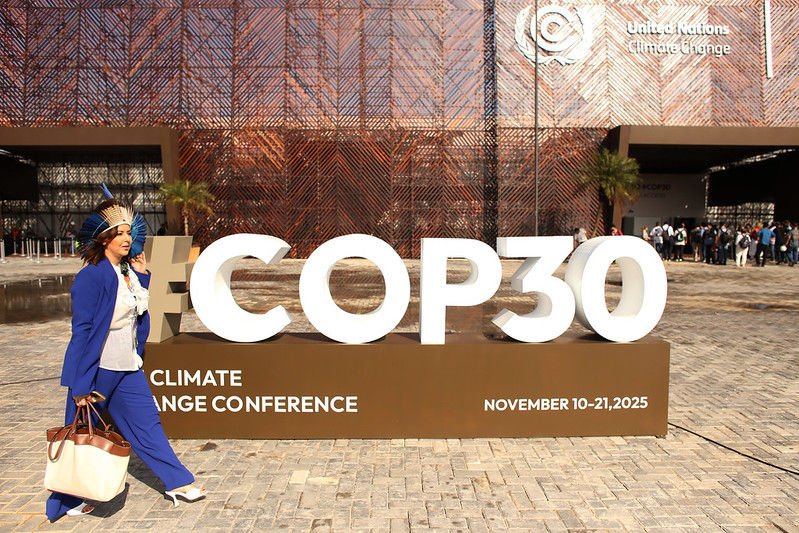Starting a just transition journey in Kosovo
- gosiarychlikeu
- Jun 12, 2022
- 4 min read
On June 2, 2022, over 30 stakeholders met in Pristina, Kosovo, to discuss the foundations and principles of just transition. The full-day event, jointly organized by Climate Reality Europe and the Kosovan NGO EcoZ, brought together activists, civil society organizations, Climate Reality Leaders, and representatives of municipalities, the European Union’s Energy Community Secretariat, the Government of Kosovo, and the Office of the President.
The presentations and discussions took place in the context of Kosovo’s almost entire dependency on two aging lignite plants for its electricity generation, for which there is unfortunately no phase-out deadline.
“On this journey, nothing can be done alone.”
The first presentation was given by Learta Hollaj, adviser for sustainable development at the Office of the President of Kosovo, who outlined the need for a fair and sustainable energy transition that takes into account the needs of the whole of society. Stressing the commitment of the Office of the President to enhancing dialogue among stakeholders, she pointed out that raising awareness and education on the green agenda and energy efficiency are vital for effective exchange among informed participants.
“A big challenge, but not impossible.”
Bashkim Pllana, from the Ministry of Economy’s Department of Energy, then talked about how Kosovo can meet the challenges of the transition to clean energy. New wind and solar capacities have already been developed by the private sector and are generating 5% of the country’s electricity, with a target of 35% by 2031. A full review of energy sector policies is currently underway, including the regulations governing energy efficiency and renewable resources, and public consultations are part of the process. Besides investments in renewable capacities, the Kosovo B coal-fired power plant is currently being refurbished with the support of the EU. There are also ongoing investments in the residential heating system to enhance energy efficiency in buildings. Studies are being carried out on low-carbon gasification, while the ministry is calculating a gradual transition from fossil fuels to renewables.
“The ministry is part of the picture.”
With over 40% of the country’s energy being used in buildings, Arben Ajazi from the Ministry of Environment, Spatial Planning, and Infrastructure stressed the vital importance of improving building energy performance and energy efficiency in buildings. In support of future measures, a study has already been undertaken to assess the current building stock. A concept paper has been prepared and a new law on the energy performance of buildings is being drafted based on the results of the assessment, which will include a new building registry system.
“A transition with citizens at the focus.”
Representing Climate Action Network (CAN) Europe, Viktor Berishaj pointed out that while communities in coal-mining regions are often left out of the dialogue on the energy transition, their participation is essential in the interests of appropriate planning. Solutions must be tailored to their needs, and communities must understand the roadmap to transition if they are to play an effective role. Mr Berishaj defined a just transition strategy as one that includes measurable targets, an action plan, and partnership at a national level with all stakeholders. Employees must be an integral part of long-term planning and decision-making, and these processes must be subject to rigorous control. The needs of society must be taken into account in policy making and the development of legislation.
“Involving local communities is of the utmost importance.”
Irina Lazzerini of the Energy Community Secretariat explained how a transparent just transition strategy must be part of the country’s integrated energy and climate plans, which in turn must be translated into plans for action. She talked about the importance of including the expectations and assumptions of local communities right from the very beginning. In this context, a survey on public perceptions of just transition has recently been carried out in cooperation with the World Bank in coal-reliant regions in the Western Balkans. The goal of the survey was to assess the levels of awareness and understanding in local communities. The key findings were that most respondents are not familiar with the concept of just, inclusive transition and, in general, they are concerned about the consequences that an energy transition may have on their households and local communities, such as rising electricity prices and increased unemployment. However, the survey also demonstrated that the respondents, especially younger citizens, are keen to be involved. The decarbonization process can be supported by naming a date for the phase-out of coal, introducing carbon pricing, and establishing a legally binding framework for the implementation of emissions reduction targets.
“Early, transparent, and participatory planning is key.”
Pointing out that coal production will decrease due to the 2050 decarbonization goal and the EU’s Carbon Border Adjustment Mechanism (CBAM), Tassos Chatzieleftheriou of the environmental think tank The Green Tank argued that this situation makes a just transition fund for the Western Balkans essential. The energy transition will have a huge impact, and funds will be needed to support communities and to ensure that the transition is just. These funds might come from several sources, including carbon pricing, the EU’s CBAM, and the EC’s Economic and Investment Plan for the Western Balkans. In a study carried out by The Green Tank and CEE Bankwatch Network, criteria were proposed for the distribution of a future just transition fund. Countries with higher ambitions, such as rapid phase-out dates for coal, would be prioritized, making early, transparent, and participatory planning key.
The morning presentations were followed by an afternoon workshop, during which participants explored what a successful energy transition and just transition would mean for all members of society (citizens, businesses, municipalities, and the government). The discussions are due to be continued in the autumn, in the form of webinars.






![Turning to local climate action [webinar recordigns & resources]](https://static.wixstatic.com/media/49dc72_7c0b72dc499c4a6b99314f5bf07b6a47~mv2.jpg/v1/fill/w_980,h_551,al_c,q_85,usm_0.66_1.00_0.01,enc_avif,quality_auto/49dc72_7c0b72dc499c4a6b99314f5bf07b6a47~mv2.jpg)
Comments